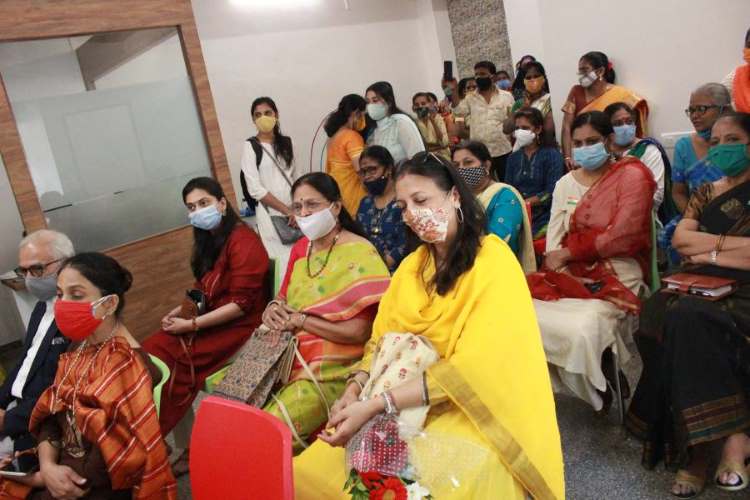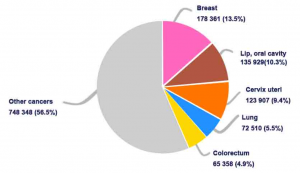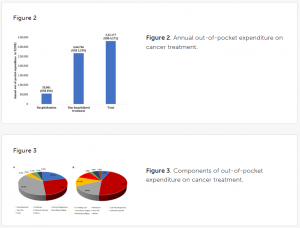
Cancer remains a formidable public health challenge in India, with an alarming annual incidence of around 1.3 million new cases. The exorbitant cost of cancer treatment make it inaccessible to a large number of patients in the country. Cancer patients and their families endure the distressing repercussions of financial toxicity—an onerous economic burden stemming from the high cost of cancer care.
A recent study published in the journal Frontiers in Public Health sheds light on the issue of financial toxicity among cancer patients in India. The study unveils a distressing statistic: a staggering 68% of patients grapple with financial toxicity which severely compromises their overall quality of life.
Cancer claims the lives of nearly 10 million individuals annually, accounting for a sixth of all deaths globally. A majority of cancer-related deaths are in low-income countries. In India, an estimated 1 million new cases and 0.7 million deaths are reported every year. While the highest incidence of cancer is in high-income nations, low-income countries account for most cancer deaths.
READ I Climate finance: The most vulnerable countries need more than promises
Cancer the biggest public health challenge
High prevalence of cancer puts an overwhelming strain on the already stretched healthcare system of the country. The high costs of treatment increase the financial burden on the low- and middle-income families. Inadequate health insurance coverage and substantial out-of-pocket expenses compound the financial toxicity experienced by these families, plunging them into destitution, debt burden, and impoverishment.
Ensuring access to quality cancer care for all citizens is an absolute imperative. The Narendra Modi government’s flagship Ayushman Bharat Pradhan Mantri Jan Arogya Yojana has made commendable strides in granting cancer patients access to cashless surgical, medical, and radiation therapies through a vast network of approximately 28,000 empaneled hospitals. But, the government needs to widen the scope and coverage of the scheme to effectively address the financial burden on Indian families caused by cancer treatment.
New cancer cases in India (2020)

The study emphasizes the need for policy intervention targeting the financial burden on cancer patients, particularly those from disadvantaged backgrounds. Comprehensive consultations involving diverse stakeholders such as healthcare providers, government agencies, insurance companies, and advocacy groups are crucial for forging effective strategies to combat financial toxicity. Strengthening the public healthcare system and implementing prepayment mechanisms like social insurance represent pivotal steps toward alleviating the financial distress endured by cancer patients and their families.
The study further highlights a range of adverse outcomes linked to financial toxicity, including:
- Diminished treatment adherence: Financial toxicity undermines patients’ ability to adhere to their prescribed treatment plans, resulting in poorer treatment outcomes.
- Escalated stress and anxiety: The daunting financial burden of cancer treatment exacerbates stress and anxiety levels for patients and their families. This affects their mental well-being and hampers their coping mechanisms against the challenges posed by cancer treatment.
- Deterioration of physical and mental health: Financial toxicity precipitates a decline in both physical and mental health. Patients facing financial hardship encounter difficulties maintaining a healthy diet, engaging in regular exercise, and obtaining adequate rest, thus exacerbating the physical demands of cancer treatment.
- Heightened risk of mortality: Financial toxicity has been found to amplify the risk of mortality. Patients facing financial hardship are unlikely to seek early diagnosis and treatment, resulting in more advanced and harder-to-treat cancer cases.
The findings of this study underscore the urgency of addressing the issue of financial toxicity in cancer treatment in India. A range of impactful measures can be taken to tackle this problem effectively, including:
- Enhancing affordability of cancer treatment: The government can institute subsidies for cancer treatment or undertake measures to reduce the costs associated with cancer drugs.
- Providing financial assistance to cancer patients: Expanding government programs like Medicaid or Medicare to encompass dedicated financial support for cancer patients would prove highly beneficial.
- Amplifying awareness of financial toxicity among cancer patients and their families: Government-led public education campaigns can play a pivotal role in raising awareness about the financial burdens associated with cancer treatment.
By implementing these measures, we can ensure that cancer patients in India are provided unhindered access to the treatment they require, liberated from the overwhelming anxieties associated with financial burdens.

In addition to the interventions, it is crucial to consider the following aspects in addressing the financial toxicity of cancer treatment in India:
The financial burden stemming from cancer treatment disproportionately affects low-income families. Even with government assistance, these families often lack the necessary resources to afford the required treatment. Financial toxicity often prompts patients to postpone or forego treatment, which poses grave implications for their health outcomes. Such delays or omissions may lead to inferior prognoses and an increased likelihood of succumbing to cancer.
Resolving financial toxicity necessitates a multifaceted approach encompassing financial assistance to patients, heightened awareness campaigns, and increased affordability of cancer treatment. However, further research is needed to evolve effective strategies for combatting this issue.
The high cost of cancer diagnosis and treatment impose a huge economic burden on patients and families. The government must take urgent policy steps to address the financial toxicity inherent in cancer treatment in India and ensure that all cancer patients have access to necessary treatment, regardless of their financial circumstances.

